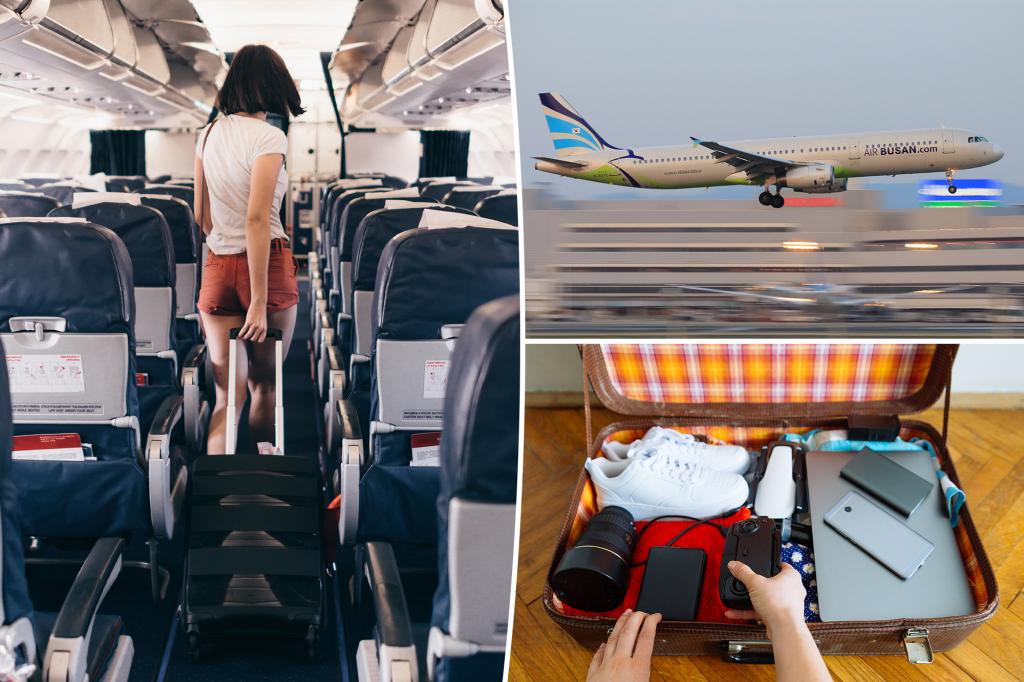Check Your Luggage: A New Era in Airline Safety
The world of air travel is constantly evolving, and safety remains the top priority for airlines and aviation authorities. Recent events have brought attention to a critical issue: the dangers posed by lithium batteries in portable chargers and power banks. In a groundbreaking move, Air Busan, a South Korean budget airline, has banned the storage of power banks in overhead bins. This decision follows a suspected lithium battery fire that destroyed a passenger jet, highlighting the potential risks associated with these devices. The incident has sent shockwaves through the aviation industry, prompting airlines and regulators to rethink safety protocols.
The Hidden Danger of Lithium Batteries
Lithium batteries are a common feature in modern electronics, powering devices such as laptops, smartphones, and power banks. While they are convenient, they also pose a significant risk. Aviation safety regulations have long prohibited these batteries from being placed in checked luggage due to the risk of overheating and igniting. However, the recent incident involving Air Busan has raised concerns about their storage in carry-on baggage as well. The fire in question broke out in the overhead storage area of a plane preparing for departure to Hong Kong. Fortunately, the crew acted swiftly, and all passengers were evacuated safely. However, the incident has left the aviation industry scrambling to address this growing threat.
Air Busan’s Proactive Approach to Safety
In response to the incident, Air Busan has taken a proactive stance to enhance safety measures. The airline will now inspect all carry-on baggage at boarding gates to ensure that no power banks are placed in overhead bins. This move is designed to prevent similar incidents in the future. Passengers are being instructed to keep their portable chargers with them in the cabin, where any signs of overheating, smoke, or fire can be detected and addressed more quickly. Additionally, the airline has announced plans to increase fire training for crew members and upgrade fire containment equipment on board its planes. These measures reflect the airline’s commitment to prioritizing passenger safety above all else.
Global Concerns About Lithium Battery Risks
The issue of lithium battery safety is not limited to Air Busan or South Korea. The U.S. Federal Aviation Administration (FAA) has also raised alarms about the dangers posed by these batteries. According to the FAA, there has been a staggering 388% increase in fires caused by lithium batteries over the past decade. This trend is alarming, and it underscores the need for stricter safety protocols. So far this year, there have been three reported incidents involving extreme heat, smoke, or fire caused by lithium batteries. These incidents serve as a reminder of the potential dangers associated with these devices and the importance of proper handling and storage.
Expert Warnings and Guidance for Travelers
The risks associated with lithium batteries have also been highlighted in a recent report from UL Standards, a leading authority on safety standards. The report warns that lithium-ion batteries can pose a significant threat to air travel if not handled properly. It advises travelers to avoid storing devices containing these batteries in checked luggage, as this can increase the risk of an incident occurring. Instead, the report recommends keeping all lithium-ion battery-powered devices within arm’s reach during flights. This approach allows passengers and crew to monitor the devices more closely and respond quickly if something goes wrong. By following these guidelines, travelers can play a crucial role in ensuring their own safety and the safety of those around them.
The Future of Air Travel Safety
The incident involving Air Busan and the subsequent measures taken by the airline and regulatory bodies mark the beginning of a new era in air travel safety. As technology continues to advance, the devices we rely on will inevitably become more powerful and energy-efficient. However, this progress must be balanced with the need for robust safety measures. Airlines, regulators, and travelers all have a responsibility to stay vigilant and adapt to emerging risks. By working together, we can ensure that air travel remains one of the safest modes of transportation, even as we face new challenges in the years to come. The story of Air Busan’s proactive response to the lithium battery threat serves as a powerful reminder of the importance of prioritizing safety in every aspect of air travel.












